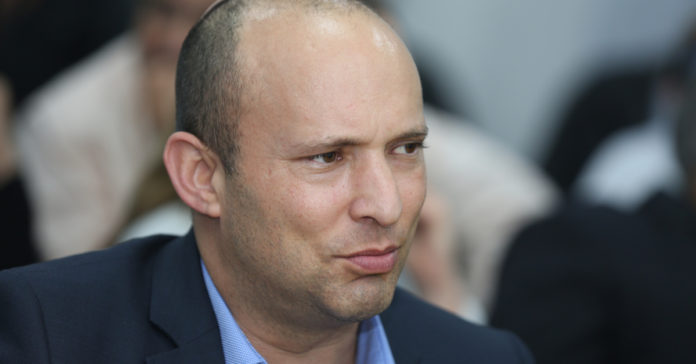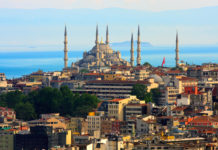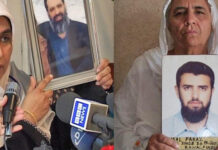Sabina Hashmy profiles Naftali Bennett, the far-right, anti-Palestinian, settler-champion accused of war crimes who is set to become Israel’s new leader.
After twelve years, four elections and a slew of corruption charges still being heard in court, Israel’s Prime Minister Benjamin Netanyahu looks set to be ousted from power by a coalition government headed by his one-time ally and now rival Naftali Bennett.
With his ultra right-wing views and an ethno-nationalist agenda firmly catering to settler colonists and hardcore Zionists, Bennett’s appointment will, like his predecessor, push Israel’s political landscape further to the right, despite the inclusion of Palestinian politicians in the ruling government for the first time.
While there may be a downturn in his fiery rhetoric (at least initially) to maintain the façade of an egalitarian democratic rule for Israelis and Palestinians, Bennett’s political and military history point to a future of further political disenfranchisement for all Palestinians.
This spells bad news for Palestinians within Israel’s 1948 borders, those under occupation and the continuation of a policy of illegal land grabbing in the West Bank in the form of “settlement” expansion and house demolitions contrary to international law.
The Qana massacre
Naftali Bennett was born in Haifa, Israel, in 1972, the son of American Jewish immigrants who moved to Israel from San Francisco.
Subscribe to our newsletter and stay updated on the latest news and updates from around the Muslim world!
Bennett was drafted into compulsory Israeli military service in 1990 eventually rising to the rank of commander of a highly secret military unit named Maglan which operated inside Lebanon during the Israeli invasion of 1996.
It was during this time that he would preside over one of the worst civilian war atrocities of this period known as the Qana massacre, in which a UN compound clearly marked with black and white UN signs sheltering hundreds of Lebanese civilians and United Nations Interim forces was shelled by the Israeli army under his direct command.

Over a hundred civilians – half of them children – were massacred with one man, Saadatullah Ali Belhas, losing thirty seven members of his family. A UN report on the massacre would later conclude the attack was likely to be “deliberate” whilst an Amnesty International investigation found “the IDF intentionally attacked the UN compound.”
The incident would come back to haunt Bennett during the 2015 elections when an Israeli newspaper made claims that prior to the attack he had panicked becoming hysterical under fire and changed the operational plan causing the massacre.
He was irked by the media coverage and hit back expressing no remorse for the loss of lives but rather defensive pride over his actions. In fact has made no secret of his violence towards Arabs boasting in 2013:
“I have killed lots of Arabs in my life – and there is no problem with that.” Haaretz
Courting the right
Bennett made millions when he sold his U.S.-based software company, and after moving back to Israel in 2005 he caught the attention of his now former mentor Netanyahu (then in opposition) and went on to become his chief of staff for two years.
The two worked closely together with Bennett holding many ministerial posts as part of Netanyahu’s coalition government, but his political ambitions for the top job were clear early on when he left Netanyahu’s Likud party and embarked on a partnership with Ayelet Shaked, then a secular hard-right activist to form the extra parliamentary Zionist movement My Israel.
He later left Likud to join and head the struggling far-right religious Jewish Home party, revamping it as a pro-settler entity and winning a number of seats in the Israeli Knesset, where he represented settler-colonist interests as head of the Yesha council lobbying against settlement freezes in 2010.

Both Shaked and Bennett would break away from Jewish Home to form the New Right party in 2018 in a bid to create a political enterprise palatable to both secular and religious Jews, founded on opposition to the creation of a Palestinian state and the assertion that all of Israel belongs to the Jewish people.
Branding himself as a champion of the settler movement and a strong advocate of further Palestinian land annexation to appeal to both right-wing secularists and Orthodox religious groups is key to Bennett’s rising success. And he has often employed firebrand ultra nationalist religious rhetoric to win the support of voters.
“On the matter of the Land of Israel, we have to move from holding action to a decision. We have to mark the dream, and the dream is that Judea and Samaria (the West Bank) will be part of the sovereign State of Israel. We have to act today, and we must give our lives.” Haaretz
Palestine statehood
Bennett is adamant in rejecting the establishment of a Palestinian state under any circumstances proposing the annexation of 60% of the West Bank and deriding the moribund two-state solution in an op-ed for the New York Times in 2013 entitled “For Israel, Two State is no solution.”
“I will do everything in my power, forever, to fight against a Palestinian state being founded in the Land of Israel.” The New Yorker magazine, 2013
“It’s just not going to happen. A Palestinian state would be a disaster for the next 200 years.” Naftali Bennett The Guardian, 2013
His somewhat bizarre approach regarding the Palestinians is to view them much like an annoying irritation to be endured and managed as part of the price of the continuing existence of Israel, but never to be allowed statehood. He once infamously made an analogy between dividing Israel to create a Palestinian state with a friend with “shrapnel in his butt” who knows removing it will disable him.

The Israeli state-sanctioned aggression against the Al Aqsa sanctuary provoked some of the worst violence seen in Palestine for many years last month, while the ceasefire incursions by Israeli settler colonists who wish to take over the site and establish the Third Temple continue to stoke tensions.
Bennett supports greater Israeli control and laws over East Jerusalem in order to increase access for Jews to the site despite international recognition of Israel’s illegal annexation of East Jerusalem during the 1967 war.
However, Bennett would be foolish not to recognise the sensitivity of this issue and may well tone down his usual firebrand discourse on the matter of the Al Aqsa sanctuary.
Bennett is also poised to be Israel’s first religiously observant leader ending a legacy of secular Zionist heads of government. This will be the culmination of his concerted efforts over the years to marry together his far right Zionist fervour with religious dogma.
Yet his fragile coalition government includes far left parties and the Arab Ra’am party so the questions over whether this fragile joining-of-hands can survive the instability of Israeli politics and a renewed Palestinian unity have already begun.










![24 Hour Road Trip Through Free Syria [Short Film]](https://5pillarsuk.com/wp-content/uploads/2025/02/IMG_5907-218x150.jpg)











